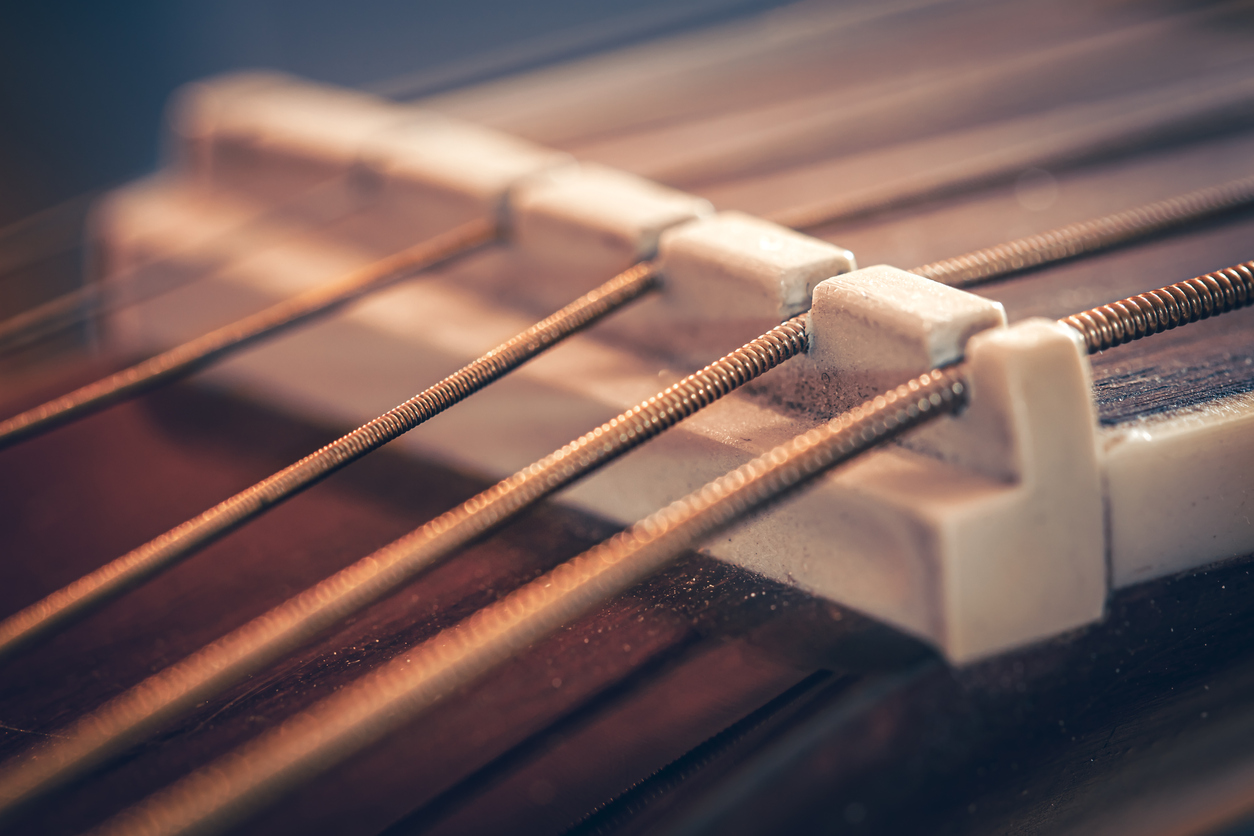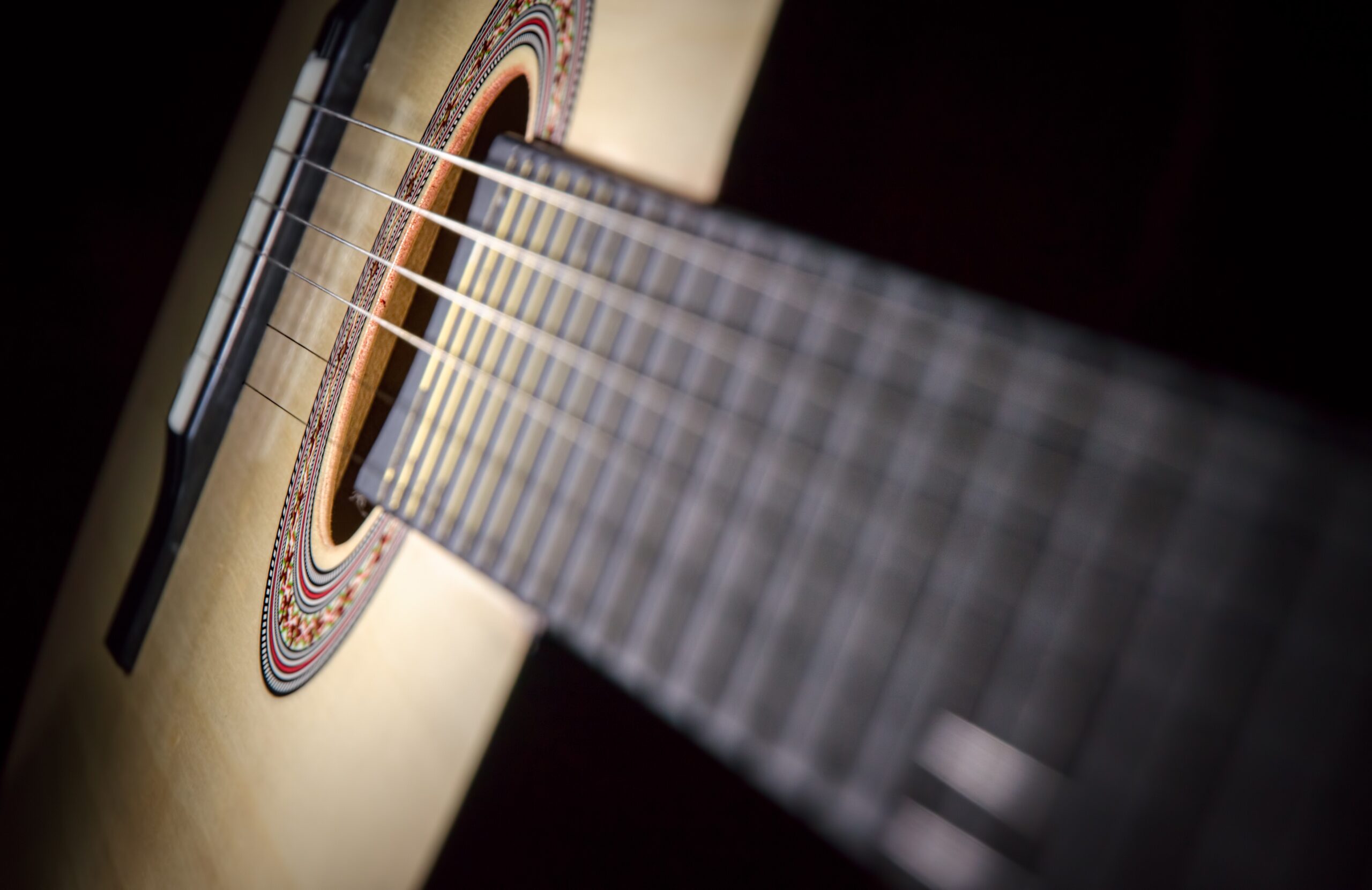If you are just learning to play a guitar or seasoned guitar player, buying a pre-owned guitar at Pawn Central is a great start to your journey. When you take your guitar home, remember that maintaining your guitar is crucial for its longevity and optimal performance. By taking proper care of your instrument, you can preserve its sound quality, extend its lifespan, and enhance your playing experience. In this blog, we will explore the importance of guitar maintenance and provide valuable tips to help you keep your guitar in exceptional condition.
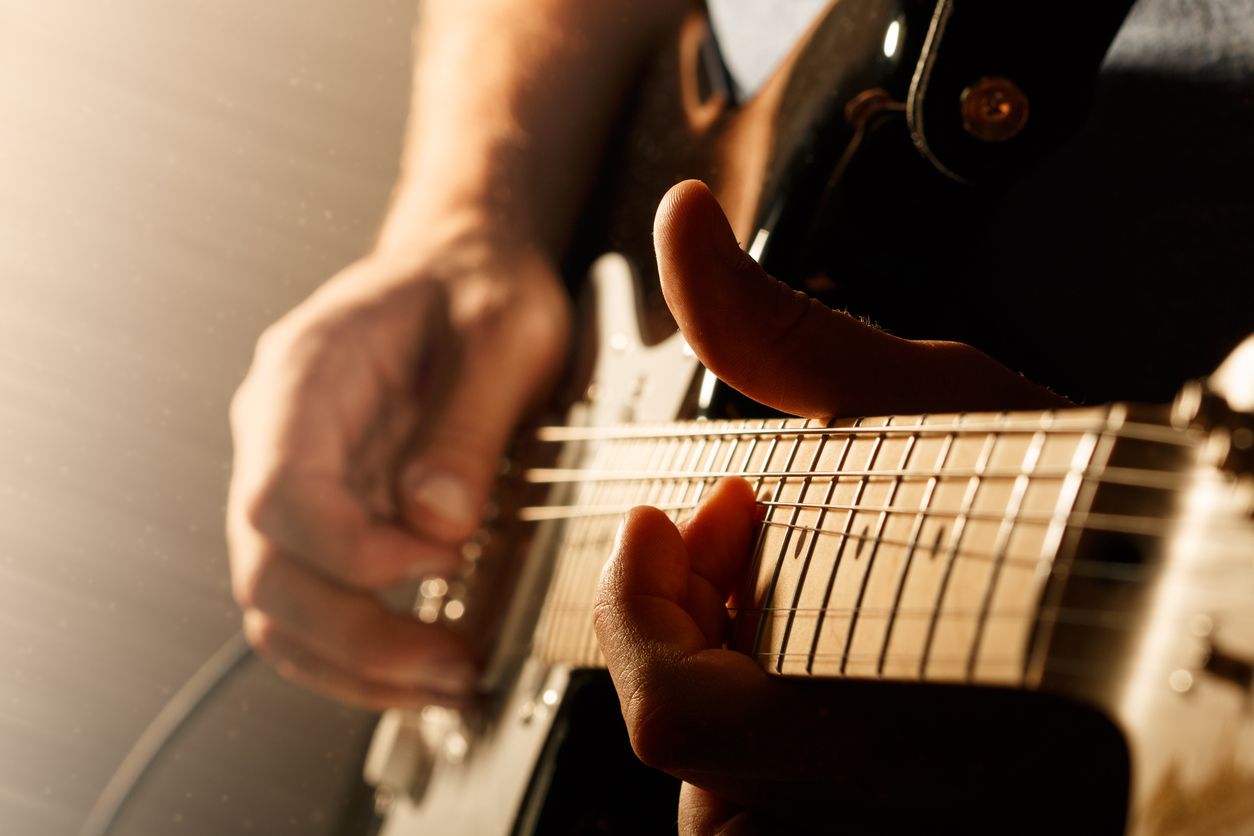
Understanding the Importance of Guitar Maintenance
A well-maintained guitar sounds better, but also plays more smoothly. By regularly caring for your instrument, you can avoid potential issues and costly repairs in the future. Let’s delve into the key reasons why guitar maintenance is essential:
Preserving Your Guitar’s Sound Quality
The sound quality of your guitar depends on various factors, including the condition of its components and the setup of its strings. Regular maintenance helps preserve the tonal clarity and resonance of your instrument. Removing dirt, dust, and grime from the body and strings can significantly improve the sound of your guitar.
When you play your guitar, the vibrations produced by the strings resonate through the body, creating the beautiful tones that we all love. However, dirt and dust can accumulate on the body and strings over time, dampening the vibrations and affecting the overall sound quality. By regularly cleaning your guitar, you can ensure that these unwanted particles are removed, allowing the vibrations to travel freely and producing a clearer and more vibrant sound.
In addition to cleaning, proper maintenance also involves checking and adjusting the components of your guitar. This includes inspecting the bridge, nut, and tuning pegs to ensure they are in good condition and properly set up. Any loose or worn-out parts can negatively impact the sound quality and playability of your guitar. By addressing these issues promptly, you can maintain the optimal sound quality of your instrument.
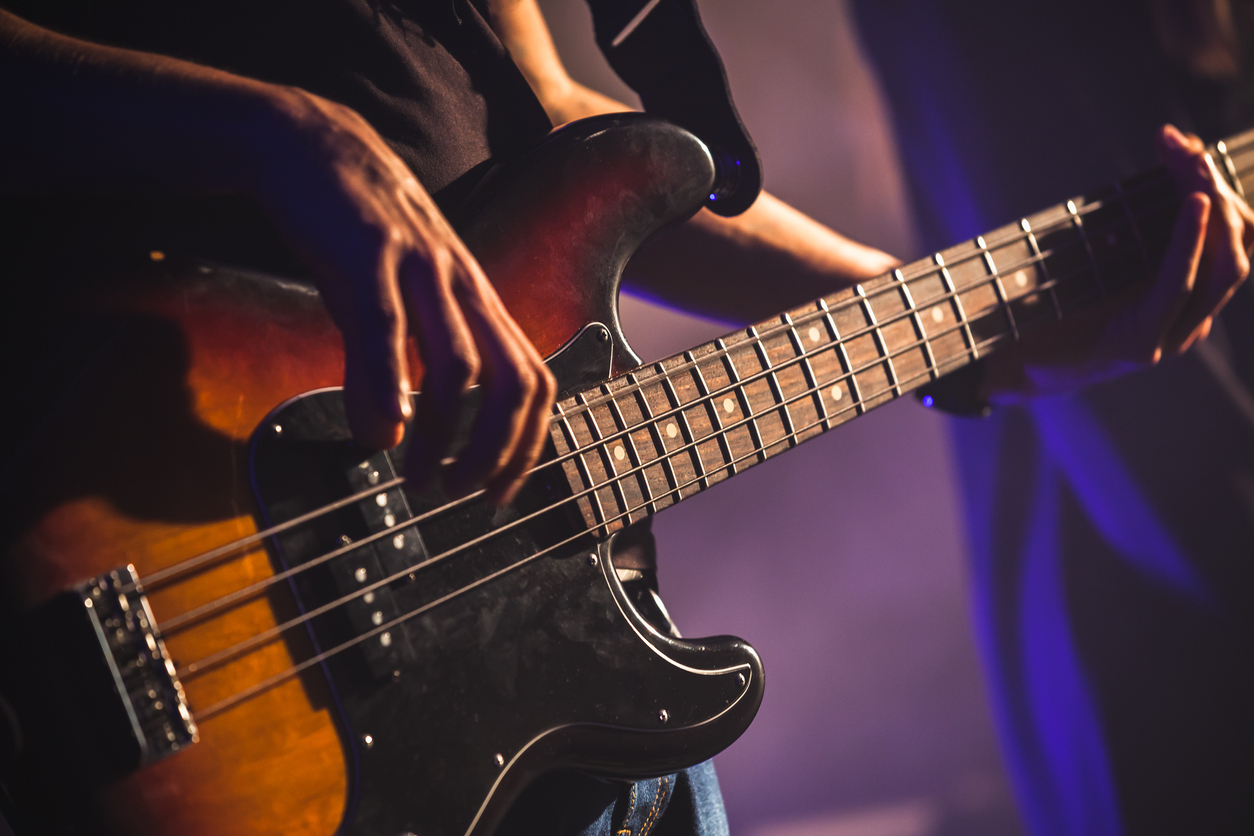
Extending the Lifespan of Your Guitar
Guitars are made of delicate materials that can be easily damaged over time. Implementing proper care and maintenance practices ensures your guitar remains durable and functional for years to come. By promptly addressing minor issues and keeping your guitar in optimal condition, you can avoid major repairs or even a replacement.
Pawn Central has an inventory of pre owned guitars tested, cleaned, and ready to play. The pawnbrokers encourage customers to “try on” the guitars and provide the customer with all the information they have about the instrument.
One of the main enemies of a guitar’s lifespan is humidity. Changes in humidity levels can cause the wood to expand or contract, leading to cracks or warping. To prevent this, it is important to store your guitar in a controlled environment, away from extreme temperature and humidity fluctuations. Additionally, using a humidifier or dehumidifier in your guitar case can help maintain the ideal humidity level, protecting the wood and prolonging the life of your instrument.
Regular maintenance also involves checking and adjusting the neck relief, which is the slight curvature of the neck. Changes in temperature and humidity can cause the neck to warp or bow, affecting the playability of the guitar. By regularly monitoring and adjusting the neck relief, you can ensure your guitar remains comfortable to play and avoid potential damage.
Furthermore, proper maintenance includes regularly changing the strings. Over time, strings can become worn out, lose their brightness, and even develop rust. By replacing them regularly, you not only maintain the optimal sound quality, but also prevent any potential damage that old and worn-out strings can cause to the frets or bridge of your guitar.
Lastly, keeping your guitar clean and free from dirt and grime not only improves the sound quality but also protects the finish of the instrument. Regularly wiping down the body and using appropriate cleaning products can help prevent scratches and keep your guitar looking as good as new.
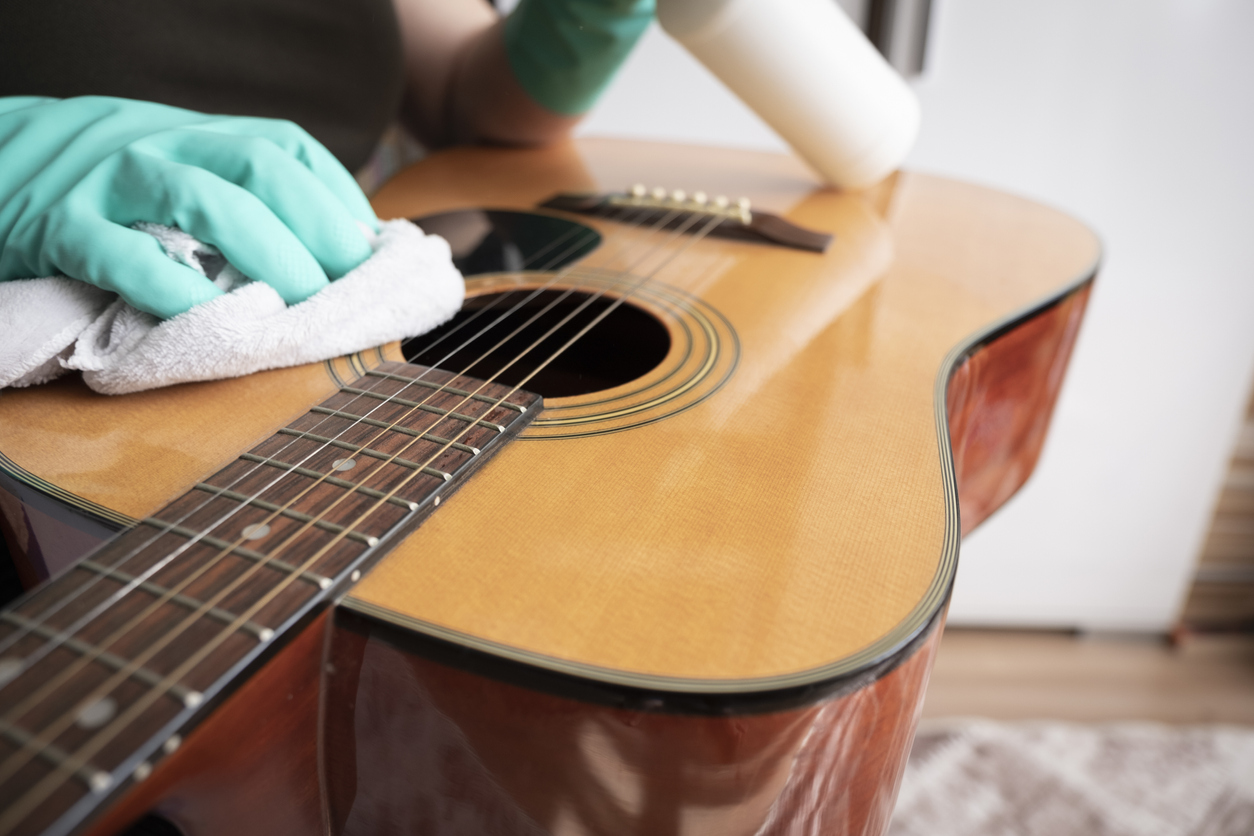
Basic Guitar Care Tips For a New and Pre Owned Guitar
Now that we understand the significance of guitar maintenance, let’s explore some essential care tips that will keep your instrument looking and sounding its best:
Cleaning Your Guitar
Regular cleaning is paramount to maintaining the appearance and longevity of your guitar. Start by gently wiping the body and neck with a soft cloth after each playing session to remove sweat and oil residue. Be cautious not to apply excessive pressure or use abrasive materials that could harm the finish.
But did you know that cleaning your guitar goes beyond just wiping it down? It’s important to pay attention to the fret board. Over time, dirt and grime can build up on the frets, affecting playability and tone. To clean the fret board, use a specialized fret board cleaner and a soft brush to gently scrub away any dirt or residue. This will not only keep your fret board looking clean, but also ensure smooth playing.
Additionally, consider using a specialized guitar cleaner to remove stubborn dirt and fingerprints. Always follow the manufacturer’s instructions and test on a small, inconspicuous area before applying it to the entire guitar.
Storing Your New and Pre Owned Guitar Properly
Proper storage is crucial in preventing accidental damage and preserving the integrity of your guitar. When not in use, place your instrument in a sturdy guitar case or wall-mounted hanger. This protects it from dust, humidity, and potential falls.
But did you know that the way you store your guitar can also affect its tone? It’s true! If you store your guitar in a case with a humidifier, you can maintain the optimal humidity level for your instrument. This is especially important if you live in a dry climate, as low humidity can cause the wood to shrink and crack. On the other hand, if you live in a humid climate, using a dehumidifier in your guitar case can help prevent moisture damage.
Furthermore, avoid exposing your guitar to extreme temperatures or direct sunlight. Rapid temperature changes can cause warping, while prolonged exposure to sunlight can fade the finish and damage the wood. Store your guitar in a cool, dry area to maintain its optimal condition.
Remember, taking care of your guitar is not only about preserving its appearance, but also about ensuring that it continues to sound great for years to come. By following these basic care tips, you can keep your instrument in top shape and enjoy playing it for a lifetime.
The Role of Humidity in Guitar Care
Humidity plays a significant role in the well-being of your guitar. Understanding its effects and implementing appropriate measures can prevent costly damage and maintain your guitar’s playability.
When it comes to guitars, humidity is not just a number on a weather report. It is a crucial factor that can make or break the condition of your beloved instrument. Guitars are made of wood, and wood is highly sensitive to humidity levels. Just like a living organism, a guitar reacts to its environment, expanding and contracting with the moisture content in the air.
How Humidity Affects Your Guitar
Guitars are sensitive to changes in humidity levels. High humidity can cause the wood to swell, leading to problems like warped necks, raised action, and diminished tone. Imagine trying to play your favorite song on a guitar with a neck that resembles a rollercoaster ride! Not only will it be uncomfortable to play, but the sound quality will also suffer.
On the other hand, low humidity can be equally damaging. When the air becomes dry, the moisture in the wood evaporates, causing it to shrink. This shrinkage can lead to cracks, loose braces, and even separations in the guitar’s body. It’s like the guitar is crying out for help, begging for a little moisture to keep it in top shape.
It’s crucial to maintain a consistent humidity level to minimize these risks. By doing so, you ensure your guitar remains in optimal condition, allowing you to enjoy its beautiful sound for years to come.
Solutions for Humidity Control For Your New or Pre Owned Guitar
Investing in a hygrometer to monitor the humidity in your guitar’s environment is highly recommended. This handy device will give you accurate readings, allowing you to take appropriate action when necessary. Ideally, aim for a humidity level of around 45-55%. This range provides a stable environment for your guitar, minimizing the risks of damage caused by extreme humidity.
So, what can you do to control the humidity around your guitar? During dry seasons or in arid climates, utilizing a humidifier is a great solution. A guitar humidifier is a small device that releases moisture into the air, ensuring that the wood doesn’t dry out. It’s like giving your guitar a refreshing drink of water, keeping it hydrated and happy.
On the other hand, if you live in a humid area, a dehumidifier can be your best friend. This device removes excess moisture from the air, preventing your guitar from becoming a breeding ground for mold and mildew. It’s like creating a dry and comfortable environment for your guitar to thrive in.
Additionally, storing your guitar with a moisture-absorbing pack inside its case can help maintain a stable humidity level. These packs, often filled with silica gel or other moisture-absorbing materials, act as little guardians, protecting your guitar from sudden changes in humidity.
Remember, your guitar is not just an instrument; it’s a work of art that deserves the utmost care and attention. By understanding the role of humidity and implementing appropriate measures, you can ensure your guitar remains in pristine condition, ready to create beautiful music whenever you pick it up.
